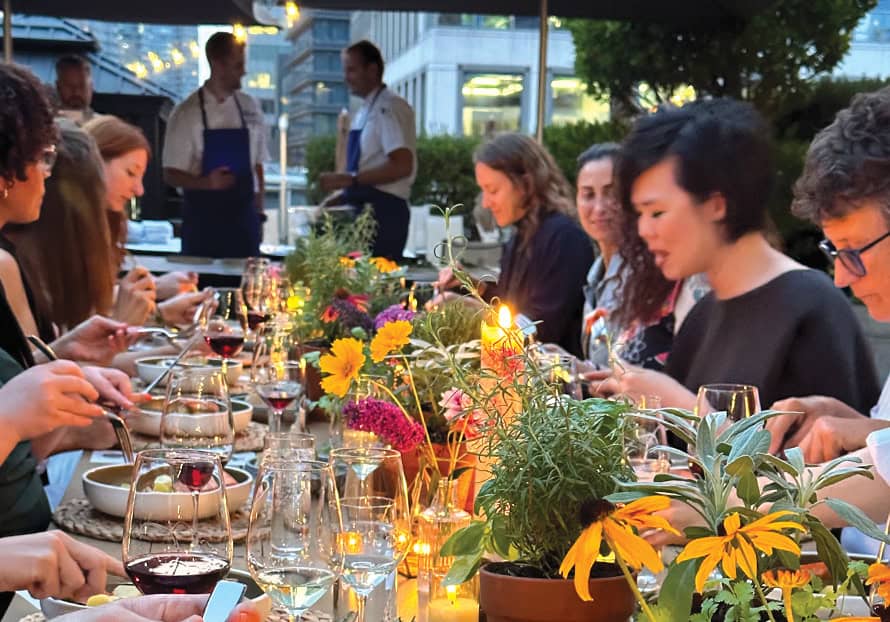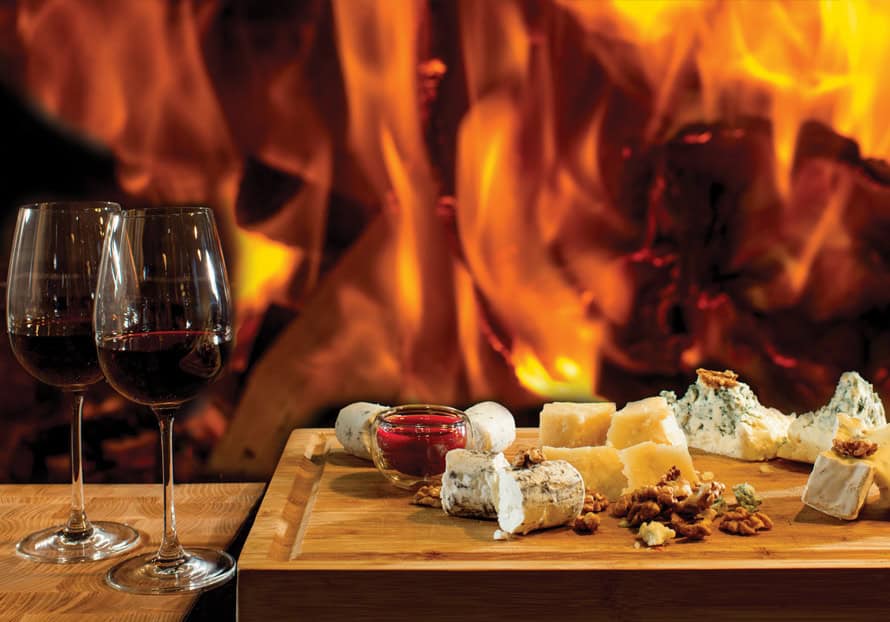Aline Nasseh Chocolatier
A former pastry chef from Brazil, Aline is the Jackson Pollock of chocolate. But perhaps that’s not surprising given her heritage and background. Her intricate splattered and splashed vibrant tropical colours probably owe a debt to her artist parents and her nuanced inventive balance of flavours and attention to detail were likely driven by her time as a pastry chef under gastronomic entrepreneur, Alex Atala.
It takes three days to produce one of her bejewelled indulgencies. Once formed and filled, the chocolate must be polished and airbrushed, splattered and sponged. It’s not surprising that Aline speaks of these labours of love as “my kids.” In business here in Toronto for only two years her creations kick up the competition in the ordinarily crowded artisanal market. Even her packaging is a cut above and ideal for weddings, premium hostesses or corporate gifts.
White chocolate is a weakness for me. I try the White chocolate with Lime. The richness of the chocolate plays off against a delicate inflection of citrus. Mouth-watering. Aline was surprised to find that Dulce de Leche was already well-known but her dark chocolate imparts a lovely bite that counterbalances her creamy caramel interior.
At this point I’m wondering if her chocolate might end up on the list of class A drugs. It’s difficult to stop. In the interests of in depth reporting I selflessly plug on. Her range of flavours is extensive. My personal preferences: Passion Fruit and Strawberry Cheesecake.
Currently available at shows and online
contact@alinenasseh.com www.alinenasseh.com
Crosswind Farm
5,000 is a lot of quirky goats to wrangle. But the demand for award-winning artisan Chèvre cheese, yogurt and now goat soap and goat-based pet milk has its demands.
Cindy Hope, part of the husband-and-wife team with Kevin, tells me they are relative newcomers to goat farming. Transitioning from a generations-old conventional dairy farm where Kevin milked his first cow as a boy the couple’s first goats arrived in 2007. At first, it was just goat’s milk but Cindy had bigger plans. In 2010 she began cheese making in a pasteurization facility at their Keene Ontario farm.
Sequential annual awards at Royal Agricultural Winter Fair followed. After tasting samples of the couple’s imaginative and wide variety of soft spreadable cheeses, I’m not surprised.
Cindy, an outgoing personality, enthusiastically urges me to try some of her more unusual Chèvre flavours. Horseradish Beet has a delightful and very different earthy piquancy balanced by creaminess. Italian Garlic has exuberant garlic tones. Cranberry Orange, one of their best sellers is infused with sweet citrus. The Herbs de Provence has Mediterranean sunniness. For those looking for a bit of a palate challenge, there is Hot Chilli Pepper.
In line with their desire to produce not only flavourful products but healthy ones there are no preservatives or additives. It’s all about the goat’s milk.
For those heading to a Kawartha cottage their farm shop should be a detour.
Yuzuki Fish Market
What’s a $55 Japanese Crown melon doing in a fish market? Lurking behind an unprepossessing exterior on the lower end of Spadina, Yuzuki is not what it seems. I had often passed it and nurtured a vague notion of stopping in. Now I could have kicked myself for not discovering this bijou gem sooner. It’s a glorious, albeit hashed-up, purveyor of some of the finest imported Japanese seafood, meat, fruit, and groceries.
They even have eight counter seats and two tables for two where freshly prepared food can be ordered from a prep area at the rear. Yuzuki’s menu is surprisingly extensive and sometimes exotic. Monkfish liver with ponzu sauce? Yellowtail collar? I opted for a simple Donburi. It was anything but. Even the takeout container was an elegant white bowl with striking blue design. Inside was a lovely medley of fish including octopus, red snapper, sweet shrimp and other varieties topped with ikura. The fish was sublimely fresh, the combination harmoniously balanced. Browsing the retail shelves will make a Japanophile giddy with choice. I can score everything from popular Meiji chocolate to eye-poppingly expensive Uni flown in directly from Hokkaido.
In talking with the friendly staff, I realised that I’d failed to make the connection to one of favourite go-to restaurants, Yuzuki on Bloor Street. No longer just a spot to walk past, this has now become a welcome hideout where I can satisfy a sudden sushi craving or a premium takeout treat
Cedar Creek Farm
Bob Taylor a Mennonite farmer from near Guelph and potato historian is on a mission: to save heritage tubers.
Anyone who has been to England in the early spring and tasted the new crop of Jersey Royal potatoes slathered with butter knows the humble potato can be a thing of gastronomic delight.
Taylor now well into his 70’s has baskets of rare and heritage potatoes spread out on one corner of his family stall at the St. Lawrence Saturday Farmers Market. I browse around, there’s Shetland Blue from Scotland, Pink Fir Apple from France, and Cups a variety from the 1800’s.
I’m intrigued by the knobby, elongated Pink Fir and ask Taylor about it. I get a history lesson. First imported into England in 1850’s from France it was one of three varieties of Fir. Only the Pink Fir Apple survived kept alive by English enthusiasts. And now by Professor Bob.
Growing and preserving the genetic diversity of heritage potatoes is not easy he tells me. Many are not available commercially as seeds so part of the crop must be held back for planting the following season. Once ready for harvest, unlike commercial potatoes, they often require some hands-on excavation. Perhaps that’s why I find Taylor’s enthusiasm infectious. It triggers a sort of agricultural nostalgia for a simpler time before accountants with spreadsheets ranked optimized chemical fertilizers, disease resistance, high yields and automated harvesting. There was a time when farmers grew crops for their taste and terroir.
I get carried away and haul away a bagful. There are Banana Fingerling, Pink Fir Apple, Shetland Blue and a recent variety Pinto Gold developed by the University of Maine.
Figuring that the best way to sample their flavour is the simplest I boil them unpeeled and serve them with cultured butter. From earthy and nutty to buttery and creamy, these heritage potatoes offer a sensory experience.











